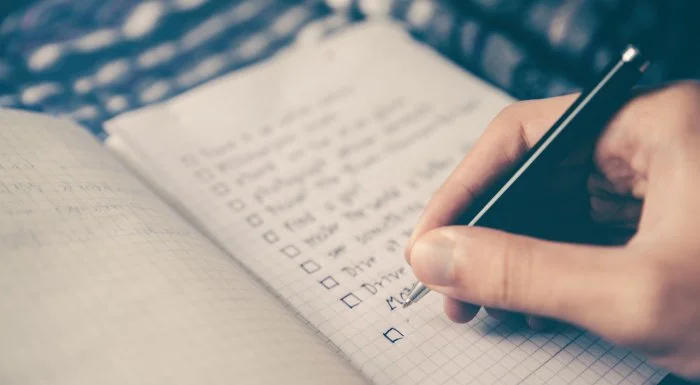
Welcome to The Locker Room.
The home of post-training catch-ups.
Our mental wellbeing is just as important as our physical health. But we know that some struggles are hard to see.
The Locker Room is all about bringing our community together, sharing stories, having a laugh and getting what’s really bothering you off your chest.
We’re here to support your wellbeing and fitness journey every step of the way because we’re stronger together.
£2.50 DONATION FROM EACH SHAKER TO MENTAL HEALTH UK
Each time you refuel your body, remember to refuel your mind.
We've worked on a collection of shakers for World Mental Health Day (10th October), that has been designed with this in mind — each shaker representing either positivity, calm, strength or revitalisation. A problem shared is a problem halved. So, we’re donating £2.50 from every shaker sold to Mental Health UK to enable them to support more people affected by mental health problems.
We are stronger together
Stronger Together Shakers
Mental Health UK Partnership
We’re proud that we’re able to support your fitness journey every step of the way. But we want to support more than your physical journey, which is why we’re working with Mental Health UK so that we can also support you with your mental wellbeing too.
Here’s a little more information about Mental Health UK and some of the work they do throughout the UK.
Mental Health UK directly supports those affected by mental health problems, but also assists with support groups to help the friends and families of those who suffer with their mental health, as well as the wider community and work-place organisations.
Working across the UK, Mental Health UK brings together experts from four national mental health charities to educate the public on mental health and provide advice, information and support. Some of their information can be found their digital information guides ‘On the Inside’ that tackle the myths surrounding mental health.
For more information please visit their website: https://mentalhealth-uk.org/
FAQs
It’s important to look after yourself, but sometimes we don’t have all the answers.
So, we’ve answered a few questions that you may have around mental health.
1 in 4 of us have experienced a mental health problem throughout their life (Source: World Health Report, WHO, Geneva, 2001).
This is why it is becoming more important to ensure that you open up and reach out to others if you have a concern around mental health, as there is a chance that someone you know might be experiencing similar concerns and worries.
The most important thing is to talk to someone you trust. Whether that's a friend, someone in your family, a colleague, a GP, or a support line.
It may be helpful to find out a little information about what you are experiencing. This may help you to get some perspective on what you are experiencing, and be the start of getting help.
It all depends on the relationship you have with this person. A great place to start is to show your support and let them know they can talk to you if they need. Or, gently encourage them to seek appropriate support.
- Keep in touch, talk about your feelings and ask for help - There’s nothing better than catching up with someone face to face and checking in with each other on how you’re doing and feeling, but that’s not always possible.
So, make sure to keep in contact with your friends, family, or colleagues — Try giving them a call, send an email or a note, or chat with them online.
Try to keep the lines of communication open especially if you feel like you’re struggling — Talking about your feelings can help you stay in good mental health as well as making it easier to ask for help if you need it.
There are local services there to help you if you feel like you can’t open up to either friends or family.
- Keep active - Regular exercise can be a significant benefit to your mental health as it keeps all your vital organs, including your brain healthy. Exercise also can help as it can help you sleep, concentrate during the day, and boost your self-esteem — making you feel better.
- Eat well - Just like all the other organs in your body, your brain needs a healthy, balanced diet to get the mix of nutrients it needs to function and stay healthy. Always try to remember that a diet that is good for your physical health is also good for your mental health.
- Drink alcohol responsibly - We may often drink alcohol for different reasons, to celebrate, when catching up with friends. But some of us drink to change our mood or when dealing with fear or loneliness, but the effect is only temporary and not a good way to manage your feelings.
When the drink wears off, you feel worse because of the way the alcohol has affected your brain and the rest of your body.
- Take a break - Whether it’s a five-minute pause from cleaning your kitchen, taking yourself out for a walk, or a weekend exploring somewhere new. We all need some time to de-stress and have a bit of ‘me time’.
- Do something you enjoy - We all have something that we love doing. Or have activities we could lose ourselves in. Or maybe there’s something you used to love doing in the past?
Whatever it is, enjoying yourself can help beat stress. Also, if you enjoy it there’s a high chance you’re good at it, and achieving something boosts your self-esteem.
- Accept who you are - We know this one can be easier said than done. So, we want to remind you that we’re all different. There’s no-one else out there who’s like you. You’re unique. And, it’s much healthier to accept who you are than to wish you were more like someone else.
Feeling good about yourself boosts your confidence to learn new skills, visit new places and make new friends. Good self-esteem helps you cope when life takes a difficult turn.
· Stay connected with friends and family.
· Stay as active as you can and eat healthy, balanced meals.
· Anticipate that it may be a difficult time and practice stress management techniques.
· Try not to worry or jump to any assumptions about the pandemic and ensure that any information you find comes from reputable sources.
The Mental Health Hub
Check out our blog for more advice about how to look after your mental health



